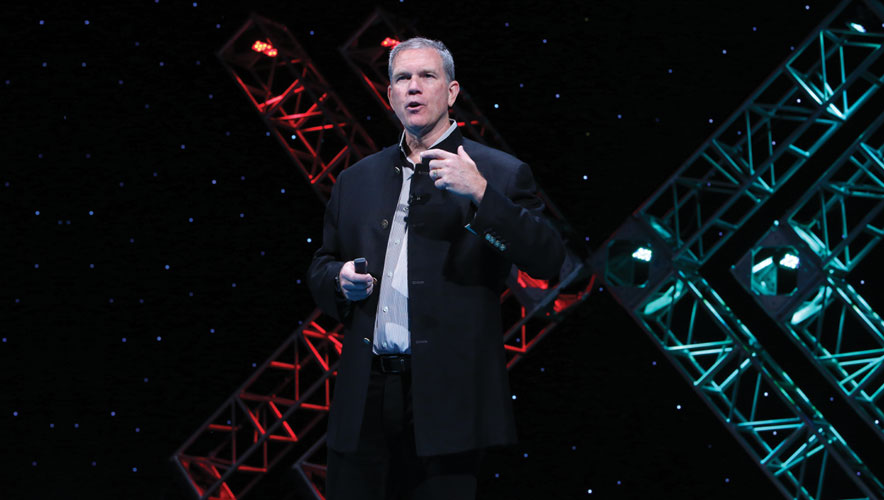Transport To Transhumanism
Technology futurist Scott Klososky is forthcoming when asked about his ideal environment: “In the mountains with a sleeping bag,” is the way he described it in an interview with Security Management that took place after one of Klososky’s education sessions at GSX 2018 in Las Vegas in September.
Klososky says he understands completely when people say they need to unplug sometimes. Nonetheless, technological innovation marches on, and, in the future, people and technology will become more and more integrated so that human abilities can be extended, and more tasks can be accomplished with the help of machines.
Starting around 2045, Klososky sees the Internet entering the “Transhumanism” era of augmented humanity, in which human capabilities can be enhanced by implants and other methods.
He offered a few examples of this involving the brain. General arrogance has led some people to believe that the brain is the most powerful computing tool in existence. That’s not the case.
“Our brain is very good about thinking about many things shallowly,” he said.
But in the era of transhumanism, people may have the option of enhancing their brain’s natural ability by connecting it to a powerful computer via an implant or another means. So, in a job interview, an enhanced applicant would have the power to draw on “hive mind” powers of knowledge and compute probabilities at lightning speed, enabling the interview answers that are amazingly informed and impressive.
That could be valuable from a business point of view, but such enhancements could exacerbate societal inequality, he said. If the brain enhancements are financially unaffordable to many, those who can afford the enhancements could in effect create a new elite, with the best and highest-paying jobs, who could form their own exclusive enclaves. This in turn could spur a growing class of resentful “have nots” which could cause political instability.
Klososky’s thoughts on innovation and the future are derived in part from his many years spent in the IT trenches. He has been the founder of several technology startups; in 1999, he sold his company webcasts.com for $115 million, according to his bio. He is now a founding partner of TriCorps Technologies, a digital strategy and cybersecurity firm based in Oklahoma City. He is the author of four books, including Did God Create the Internet? The Impact of Technology on Humanity.
Transhumanism is not the only marvel of the future that technology may have in store for us, Klososky explained.
Machines driven by artificial intelligence will become increasingly more sophisticated, and hence more valuable as a security tool. Some of these machines will be far more advanced than current-day security robots.
These futuristic machines will be programmed to become smarter on their own. They will have uncanny levels of sensing and recognition powers. Self-learning will also become more common, so machines can grow more effective without human intervention.
“These are superpowers,” Klososky said, “and we are now on the threshold of getting these.”
